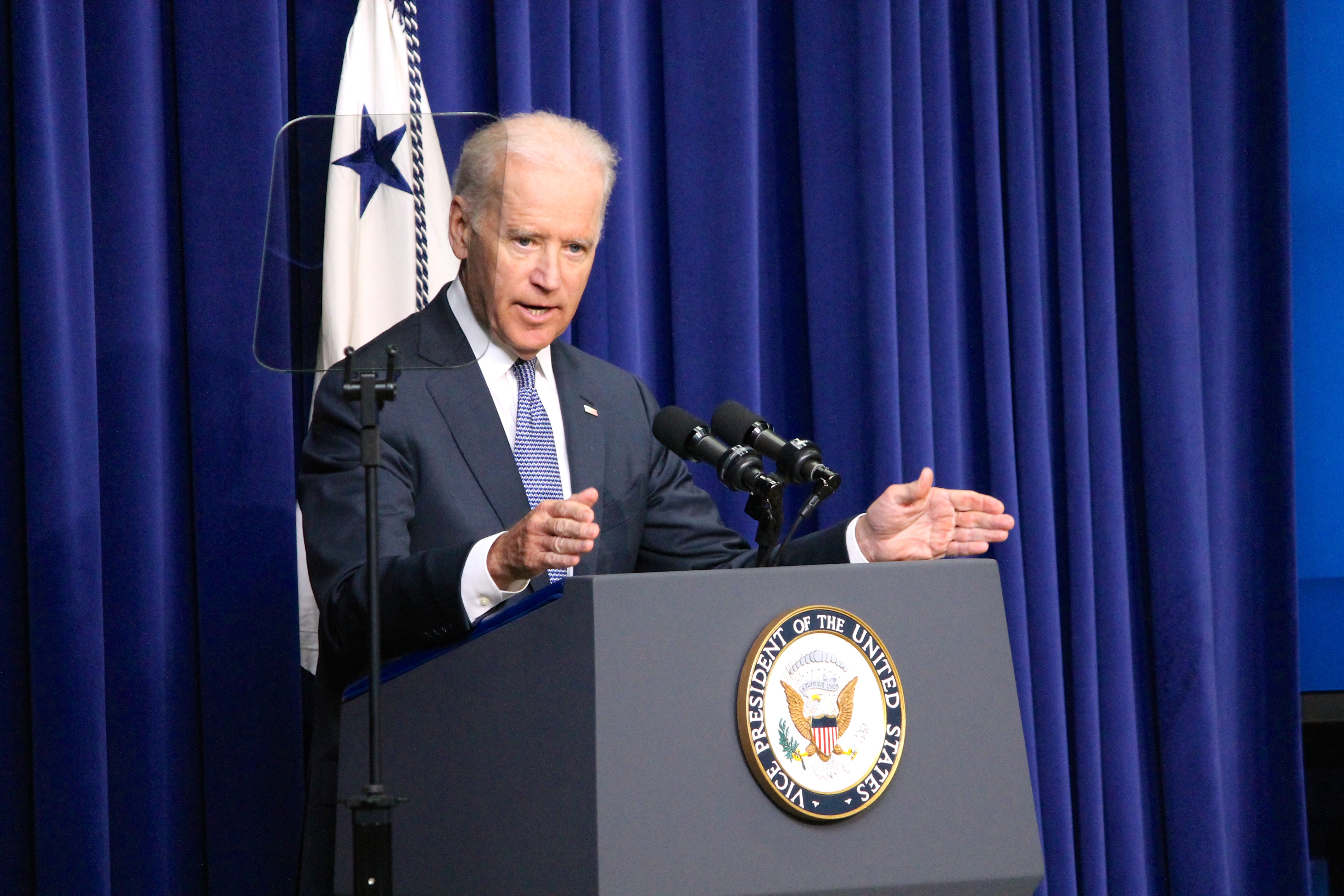WASHINGTON – Vice President Joe Biden Tuesday helped release the Obama administration’s first report tackling the issue of sexual assault on college campuses, but University of Arkansas officials said they have already taken many of the steps outlined by the White House.
The 20-page report by the White House Task Force to Protect Students From Sexual Assault outlines specific actions for colleges to take. The task force, which was created by the president in January and plans to release more reports, recommended colleges take a more aggressive response to sex assault reports, create anonymous “campus climate surveys” to measure the scope of the problem and improve prevention and intervention programs. It also included and offered a model reporting and confidentiality protocol for survivors to seek help.
There is also a checklist for colleges to use in drafting or re-evaluating their sexual misconduct policies and a new website, NotAlone.gov, that gives students and schools resources related to sexual assault.
Five forcible sex offenses were reported at the University of Arkansas in 2012, according to Clery Report data, which is collected and released by the university each year.
Melissa Harwood-Rom, dean of students at the University of Arkansas-Fayetteville, said that reports of sexual assault on campus come in far too often.
“One report a year is too many,” she said.
According to the national Campus Sexual Assault Study, conducted in 2007, one in five women are sexually assaulted while in college. Eighty percent of the cases involve someone the victim knows.
Sunday night, a female student told police she was sexually assaulted in a parking garage on the Fayetteville campus. The attacker, who was wearing a ski mask, got away. But these types of crimes on campus are rare, said University of Arkansas Police Capt. Gary Crain.
Harwood-Rom said that the university has a “team approach” in place to deal with sexual assault.
The school holds weekly meetings between representatives from the administration, student life, housing, advocacy groups and campus police to discuss any incidents, the status of the investigation and the status of support for the victim.
Harwood-Rom said that approach – combined with existing policies such as peer education programs, community partnerships with hospitals and special training – puts the university “way out in front of a lot of the guidelines” set forth by the White House, but they are welcome nonetheless.
“This is an opportunity for us to review what we do in terms of education, in terms of support, in terms of victim assistance,” Harwood-Rom said.
Biden noted that research indicates only 13 percent of sexual assaults on campus are reported.
“We need to give survivors more support and bring perpetrators to justice,” he said.
Mary Wyandt-Hiebert, director of the university’s office of support, training, advocacy, and resources on sexual assault and relationship violence, said the biggest challenge is overcoming what has been dubbed “rape culture” – culturally based barriers, deeply rooted in attitudes and beliefs that tend to continue rape myths, blame victims and overlook or excuse perpetrators.
Wyandt-Hiebert said the president’s task force will help by bringing the issue to the surface and giving greater recognition to an age-old problem.
“The more awareness of an issue, the more that it is openly discussed among the masses, the more likely change is to occur as existing myths, social norms, beliefs, and attitudes related to sexual assault are challenged and redefined,” she said.


